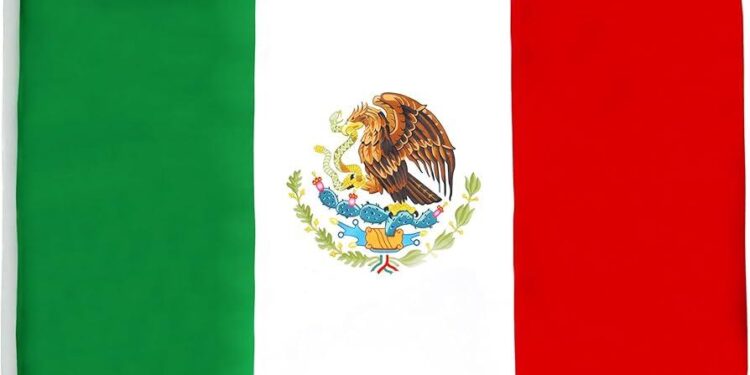Mexico’s Pivotal Judicial Election: Transforming the Nation’s Legal Future
This month, Mexico stands on the brink of a landmark judicial election that promises to redefine the country’s Supreme Court and its broader legal system. This election is more than a routine political event; it represents a critical crossroads for justice, governance, and accountability in Mexico. Amid growing concerns over corruption and human rights violations, the results will influence not only legal interpretations but also democratic stability for years ahead. This article delves into the core aspects of this electoral process, its significance, and essential insights voters should consider as they shape Mexico’s judicial trajectory.
Reimagining Mexico’s Judiciary: The New Legal Framework
In response to persistent challenges such as corruption and inefficiency within its courts, Mexico has embarked on an ambitious reform of its judicial system aimed at fostering greater transparency and responsibility. These reforms introduce several transformative elements designed to rebuild public confidence in legal institutions:
- Transparent Appointment Mechanisms: A revamped selection process intended to reduce political interference in appointing judges.
- Strengthened Oversight Bodies: New entities tasked with supervising judicial behavior to uphold ethical standards rigorously.
- Civic Engagement Initiatives: Efforts to increase public access to court proceedings and rulings, encouraging citizen participation in justice matters.
Despite these promising changes, implementation hurdles remain significant. Entrenched interests within the judiciary may resist reforms that threaten established power dynamics. The success of this overhaul hinges on multiple factors outlined below:
| Critical Factor | Influence on Reform Success |
|---|---|
| Efficacy of Oversight Institutions | The ability of new bodies to enforce accountability effectively. |
| Civic Participation Levels | The degree of public involvement in monitoring judicial conduct. |
| Governmental Commitment | The extent political leaders prioritize sustaining reform momentum. |
A recent survey by Transparencia Mexicana indicates that only about 35% of citizens currently trust the judiciary—a figure these reforms aim to improve substantially over the next five years through increased openness and fairness measures.
Evolving Electoral Procedures: Shaping Judicial Independence
The overhaul extends beyond internal judiciary changes; it also redefines how judges are elected by modifying electoral authorities’ roles. These adjustments seek enhanced integrity but raise debates about potential politicization risks affecting impartiality in appointments. Key modifications include:
- A Revamped Appointment Protocol: Designed explicitly for neutrality during judge selection processes.
- Tighter Controls Over Campaign Financing:> Increased scrutiny over spending related to elections impacting judicial posts.
<
>
<
<
table class = "wp-block-table" >
<
thead >
<
tr >
<
th > Reform Aspect< / th >
<
th > Anticipated Outcome< / th >
<
/ tr >
<
/thead >
<
tbody >
<
tr >
<
td > Electoral Authority Restructuring< / td >
<
td > Reduced undue influence; improved transparency.< / td >
<
/ tr >
<<
tr >>
<<
td >> Regulation Of Campaign Finance<<
/
td >>
<<
td >> Enhanced fairness; possible barriers for newcomers.<
/
td >>
<<
/
tr >>
<<
tr >>
<<
td >> Stricter Penalties For Misconduct<<
<
/
p > While these reforms aim at reinforcing accountability mechanisms within electoral processes tied directly or indirectly with judiciary appointments,
some analysts caution they might inadvertently limit diversity among candidates due
either stringent requirements or politicized enforcement.
h3 > Real-World Example:
In Chile’s recent constitutional court elections,
similar tightening measures led initially
to fewer independent candidates qualifying,
sparking debate about balancing oversight versus inclusivity.
Navigating Change: Strategic Guidance for Stakeholders
México’s evolving legal environment demands proactive engagement from all parties invested in upholding justice — including policymakers,
legal professionals,
civil society groups,
and informed citizens alike.
To effectively adapt amid transformation:
- < li >< strong >Keep abreastof legislative updates shaping judicial operations.< li >< strong >Consult experts(lawyers,jurists)for nuanced interpretation regarding new rules’ implications.< li >< strong >Participate actively(forums,town halls)to voice concerns & support transparent practices.< / ul >
Beyond individual efforts,
- < li>Create educational campaigns raising awareness about ongoing reforms among general populace.< li leverage technology platforms facilitating real-time communication between stakeholders & institutions .< Li benchmark successful reform models from countries like Uruguay & Costa Rica , adapting best practices locally .
A Forward Look: Cementing Trust Through Judicial Renewal
México faces an unprecedented opportunity through this sweeping election cycle — one capable not only reshaping who sits atop its highest courts but redefining how justice is perceived nationwide.
As newly appointed justices assume their roles under heightened scrutiny domestically & abroad ,
the collective vigilance from civil society alongside institutional commitment will be vital .
Ensuring transparency , safeguarding independence ,and promoting equitable access remain foundational pillars supporting democratic resilience .
Ultimately ,
this moment signals hope toward restoring faith amidst historic challenges confronting México ’s rule-of-law framework .
Citizens ’ active participation today lays groundwork securing fairer ,more accountable governance tomorrow .
The road ahead requires sustained dedication — yet promises profound rewards if navigated wisely .














